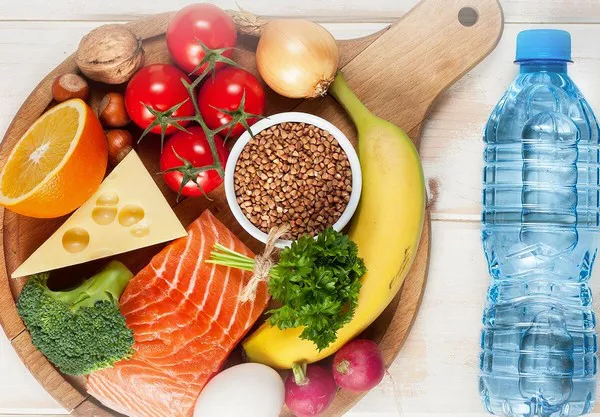Protein is a fundamental macronutrient that plays a crucial role in various physiological processes, including muscle development, immune function, and tissue repair. However, like any nutrient, consuming too much or too little of it can have significant consequences for your health. In this comprehensive guide, we will explore the potential effects and risks of following a high-protein, low-calorie diet. We’ll delve into the impacts on weight loss, muscle health, metabolism, and overall well-being, shedding light on the importance of finding a balanced approach to nutrition.
What Constitutes a High-Protein, Low-Calorie Diet?
A high-protein, low-calorie diet is characterized by an increased intake of protein-rich foods while restricting overall caloric consumption. While specific definitions may vary, such a diet typically involves obtaining a substantial portion of daily calories from protein sources while minimizing calorie intake from carbohydrates and fats. This approach is often adopted for weight loss, muscle preservation, and various health goals.
SEE ALSO: 21+ Foods High in Protein, Low in Calories
The Appeal of High-Protein, Low-Calorie Diets
High-protein, low-calorie diets have gained popularity for their potential to promote weight loss. Protein can enhance feelings of fullness, reduce appetite, and increase calorie expenditure through a process called thermogenesis.
1. Muscle Preservation: Adequate protein intake is vital for preserving lean muscle mass during weight loss, as it provides essential amino acids necessary for muscle maintenance.
2. Metabolic Benefits: Some research suggests that high-protein diets can have favorable effects on metabolism, including improved insulin sensitivity and fat oxidation.
SEE ALSO: High Protein Diet in Weight Loss: Myths & Realities
The Potential Pitfalls of High-Protein, Low-Calorie Diets
While high-protein, low-calorie diets offer several benefits, they also come with potential risks and side effects, especially when not balanced appropriately:
1. Nutrient Deficiency
Micronutrient Shortages: Severely restricting calorie intake may lead to micronutrient deficiencies, as you may not consume enough vitamins and minerals to meet your body’s needs. This can negatively impact overall health and lead to deficiencies in vitamins like B12, vitamin D, and essential minerals like iron and calcium.
Fiber Insufficiency: High-protein diets may lack the dietary fiber found in many carbohydrate-rich foods. Fiber is crucial for digestive health and helps maintain regular bowel movements.
2. Loss of Muscle Mass
Inadequate Calories: Severely limiting calorie intake can cause the body to break down muscle tissue for energy, particularly if protein intake is insufficient to support muscle preservation.
Exercise Performance: Low-calorie diets may lead to reduced exercise performance and muscle fatigue, impairing your ability to engage in physical activity effectively.
3. Ketosis and Ketogenic Diets
Ketosis Risk: Extremely low-calorie, high-protein diets may induce a state of ketosis, where the body burns fat for fuel instead of carbohydrates. While some people follow ketogenic diets intentionally, others may experience side effects like keto flu, which includes symptoms such as fatigue, nausea, and irritability.
4. Dehydration
Fluid Balance: Some high-protein diets can lead to fluid loss and dehydration, especially if they restrict carbohydrates, which store water in the body.
Kidney Strain: High-protein diets may increase the workload on the kidneys, potentially causing issues for individuals with preexisting kidney problems.
SEE ALSO: Is Too Much Protein Bad for Your Kidneys? You Need to Know
5. Gastrointestinal Issues
Constipation: A lack of fiber in high-protein, low-calorie diets can lead to constipation and digestive discomfort.
6. Loss of Lean Body Mass
Muscle Breakdown: Severely restricting calories without adequate protein intake can result in the breakdown of lean body mass, including muscle tissue.
7. Long-Term Sustainability
Difficulty Maintaining: High-protein, low-calorie diets can be challenging to sustain over the long term due to their restrictive nature, potentially leading to cycles of weight loss and regain.
Finding Balance: The Importance of a Well-Rounded Diet Beyond High-Protein, Low-Calorie Diets
While high-protein, low-calorie diets can be effective for short-term weight loss or specific health goals, they are not meant to be long-term solutions for overall health and well-being. A sustainable and balanced approach to nutrition is key to promoting long-term health and avoiding potential risks associated with extreme dietary patterns.
1. What Does a Well-Rounded Diet Include?
A well-rounded diet, often referred to as a balanced diet, is one that encompasses a wide variety of foods from all the major food groups in appropriate proportions. It is designed to provide the body with all the essential nutrients it needs to function optimally, including:
Carbohydrates: These are the body’s primary source of energy and are found in foods such as grains, fruits, vegetables, and legumes.
Proteins: Essential for growth, repair, and overall body function, proteins are abundant in sources like lean meats, poultry, fish, dairy products, eggs, and plant-based options like tofu and legumes.
Fats: Healthy fats are vital for the absorption of fat-soluble vitamins (A, D, E, and K) and support brain health. They can be found in avocados, nuts, seeds, olive oil, and fatty fish.
Vitamins: These micronutrients play diverse roles in the body, including immune support (vitamin C), bone health (vitamin D), and blood clotting (vitamin K). They are present in various fruits, vegetables, and fortified foods.
Minerals: Essential minerals like calcium, magnesium, and potassium are critical for bone health, nerve function, and maintaining electrolyte balance. They can be found in dairy products, leafy greens, and nuts.
Fiber: Fiber aids digestion, supports heart health, and helps regulate blood sugar levels. It is prevalent in whole grains, fruits, vegetables, and legumes.
Water: Often overlooked but crucial, water is necessary for nearly every bodily function, from temperature regulation to waste removal.
Phytonutrients and Antioxidants: These natural compounds found in plant-based foods have antioxidant properties that help protect cells from damage caused by free radicals. They are abundant in colorful fruits and vegetables.
SEE ALSO: Antioxidant Vitamins: Importance & Benefits
2. The Key Components of a Well-Rounded Diet
Diverse Foods: A well-rounded diet should include a wide variety of foods from different food groups. Incorporating foods of different colors, textures, and flavors ensures a broad spectrum of nutrients.
Moderation: Balancing portion sizes is essential. Overconsumption of any food, even healthy ones, can lead to an imbalance of nutrients and excess calorie intake.
Protein Variety: Include a variety of protein sources in your diet, both animal and plant-based. This ensures a broader range of essential amino acids.
Whole Foods: Prioritize whole, minimally processed foods over highly processed options. Whole foods retain more nutrients and are often lower in added sugars, unhealthy fats, and sodium.
Mindful Eating: Pay attention to hunger and fullness cues. Eating mindfully can help prevent overeating and promote a healthier relationship with food.
Hydration: Drink an adequate amount of water throughout the day to stay properly hydrated. Herbal teas, infused water, and water-rich foods like fruits and vegetables can contribute to your fluid intake.
3. Balanced Approaches of a Well-Rounded Diet
Prioritize Nutrient Density: Choose foods that are nutrient-dense, providing essential vitamins, minerals, and fiber to support overall health.
Balanced Macronutrients: Aim for a balance of carbohydrates, proteins, and fats in your diet. Each macronutrient plays a vital role in your body’s functions.
Gradual Caloric Reduction: If you’re aiming to lose weight, consider a gradual reduction in calorie intake rather than extreme restrictions. This allows for sustainable, long-term progress.
Consult a Professional: It’s advisable to consult a registered dietitian or healthcare provider before embarking on any extreme dietary regimen to ensure it aligns with your specific health goals and needs.
Regular Physical Activity: Incorporate regular exercise into your routine to support weight management, muscle health, and overall fitness.
Conclusion
High-protein, low-calorie diets can be effective tools for specific health goals, but they should be approached with caution and under the guidance of a healthcare professional. Nutrient balance, sustainable practices, and individualized planning are essential for promoting overall health while avoiding potential risks associated with extreme dietary patterns. Striking the right balance in your nutrition and lifestyle choices is the key to achieving long-term well-being and vitality.
[inline_related_posts title=”Related Topics” title_align=”left” style=”list” number=”3″ align=”none” ids=”2099,1924,1921″ by=”categories” orderby=”rand” order=”DESC” hide_thumb=”no” thumb_right=”no” views=”no” date=”yes” grid_columns=”1″ post_type=”” tax=””]


































